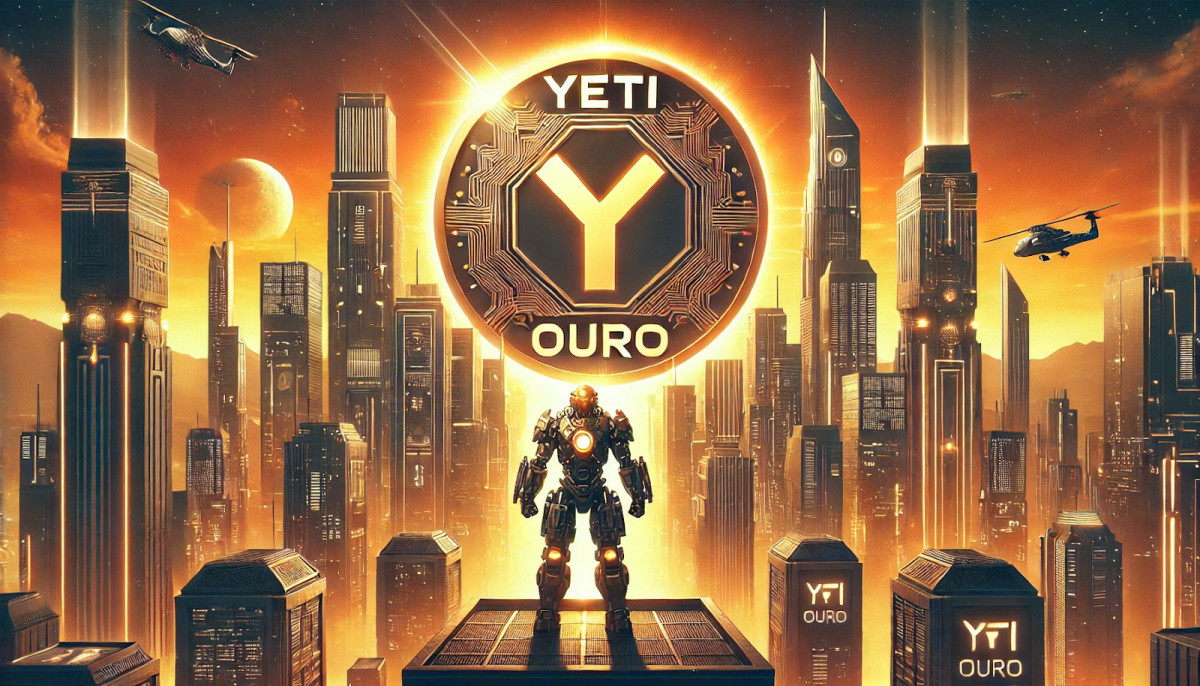Hello, and welcome to Protocol Entertainment, your guide to the business of the gaming and media industries. This Tuesday, we have an exclusive interview with Polygon Studios chief operating officer Michael Blank about his decision to leave Electronic Arts for the blockchain gaming sector. Also: Why Zero Latency is banking on older gamers and what everyone will be playing 50 years from now.
Why Michael Blank left traditional gaming for Web3
When Michael Blank left Apex Legends and Madden publisher Electronic Arts in March, he was coming up on his 20th anniversary working for one of the oldest, biggest game makers in the world. At EA, Blank had done it all: He had been a producer in the trenches of game development in Vancouver; led major initiatives at EA Sports and the company’s Origin platform in California; and up until this year was the senior vice president of the company’s player network, overseeing a 400-plus person team.
But earlier this year, Blank walked away from the traditional industry for a role as chief operating officer at Polygon Studios. The Web3 company oversees blockchain gaming, NFT and related metaverse projects on the Polygon network, a sidechain of Ethereum dedicated to helping blockchain networks work together and scale. Blank told Protocol in an interview that the promise of Web3, for gaming and beyond, is far too big to ignore.
Leaving EA was difficult, Blank told me. “I worked at EA for most of my adult life,” he said. “I felt like I was part of a family. I love games and loved the people I worked with, and making this shift was not an easy one.”
- The decision to take the plunge came as Blank was trying to figure out the next big shift not just in gaming, but for the entire internet, too.
- “How do I help a gaming company, whether it was EA or another one, think about the future of gaming? There are many companies out there, EA included, constantly grappling with what is the next thing,” Blank said.
- “I felt like I had the opportunity at Polygon to do this beyond gaming … to help create the future of the internet — this expansive view at a company that enabled it not just for gaming but also movies, music, finance marketplaces across the experience of what people do on the internet,” he added. “That’s the direction I started to migrate down.”
There was never a “now or never” moment. Instead, Blank said his work at EA thinking about the early stages of the metaverse, and what it might mean to develop all-new platforms and definitions for gaming, led him to Web3.
- “I was drawn to Web3 based on the reading I was doing about what was going on with NFTs at the time,” he said. “I thought that these were new vehicles of engagement. I was excited, and the excitement snowballed, and I felt like I needed to try and do something not entirely different, but different.”
- Blank turned to a friend, Phyl Terry, who runs an organization called Collaborative Gain, a kind of professional community oriented around business leadership. Blank said Terry helped him go through the deliberation process to arrive at his decision to leave EA and join Polygon Studios.
- “I started to follow Polygon because it was making significant advances in blockchain tech and adoption of blockchain tech in partnership with both Web 2.0 and Web3 companies,” Blank said.
- “Polygon was one of the natural companies that one would look at if they wanted to make a leap into this world and frankly this has only accelerated over the last six months, despite what we are seeing in the crypto market.”
Blank isn’t worried about the current crypto struggles. While 2021 was a breakout year for NFTs and the crypto market at large, 2022 has been a harsh wake-up call for Web3 enthusiasts.
- “I think there’s a lot of things we need to do better. There are things that have been done that are not good for the world of crypto and the…
Read More: www.protocol.com









 Bitcoin
Bitcoin  Ethereum
Ethereum  XRP
XRP  Tether
Tether  Solana
Solana  Dogecoin
Dogecoin  USDC
USDC  Cardano
Cardano  Lido Staked Ether
Lido Staked Ether  TRON
TRON  Avalanche
Avalanche  Sui
Sui  Wrapped stETH
Wrapped stETH  Chainlink
Chainlink  Toncoin
Toncoin  Shiba Inu
Shiba Inu  Stellar
Stellar  Wrapped Bitcoin
Wrapped Bitcoin  Hedera
Hedera  Polkadot
Polkadot  WETH
WETH  Bitcoin Cash
Bitcoin Cash  Uniswap
Uniswap  Pepe
Pepe  Hyperliquid
Hyperliquid  Litecoin
Litecoin  LEO Token
LEO Token  Wrapped eETH
Wrapped eETH  NEAR Protocol
NEAR Protocol  Internet Computer
Internet Computer  Aptos
Aptos  Ethena USDe
Ethena USDe  USDS
USDS  Aave
Aave  Render
Render  Mantle
Mantle  Cronos
Cronos  Bittensor
Bittensor  POL (ex-MATIC)
POL (ex-MATIC)  Ethereum Classic
Ethereum Classic  Artificial Superintelligence Alliance
Artificial Superintelligence Alliance  WhiteBIT Coin
WhiteBIT Coin  Virtuals Protocol
Virtuals Protocol  Arbitrum
Arbitrum  MANTRA
MANTRA  Filecoin
Filecoin  Tokenize Xchange
Tokenize Xchange